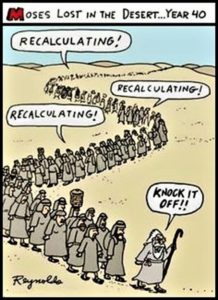
Remember Jesus of Nazareth, staggering on broken feet out of the tomb toward the Resurrection, bearing on his body the proud insignia of the defeat which is victory, the magnificent defeat of the human soul at the hands of God.
-Frederick Buechner
Christ is risen!
We give thanks for the gift of Easter that runs beyond our expectations,
beyond our categories of reason, even more, beyond the sinking sense of our own lives.We know about the powers of death, powers that persist among us,
powers that drive us from you, and from our neighbour, and from our best selves.We know about the powers of fear and greed and anxiety, and brutality and certitude, powers before which we are helpless. And then you – you at dawn, unquenched, you in the darkness, you on Saturday, you who breaks the world to joy.
Yours is the kingdom…not the kingdom of death,
Yours is the power…not the power of death,
Yours is the glory…not the glory of death.
Yours…You…and we give thanks for the newness beyond our achieving.Amen.
-Walter Brueggemann, Awed to Heaven Rooted in Earth
The Lord is risen indeed
Stating the obvious, this has been an Easter like no other. Yet for those who might be interested in authentic observance, perhaps some kind of reenactment of the first Easter as described in the gospels, maybe this year we are closer to that first Easter than we might imagine. The gospels have no record of great crowds in churches, arriving at worship early to assure a seat, glorious choral music, flowered crosses, pithy, passionate, life-changing sermons, resplendent Easter dinners, perfected fashion statements, spectacular haberdashery, let alone chocolate, bunnies or egg hunts.
What actually took place on that first Easter?
Social distancing.
Disciples cower in a room behind locked doors, afraid they might be next. A few women go early to the tomb before the crowd is out on the street. While there are hints of the beginnings of celebration and rejoicing, the predominant emotional responses include fear, doubt, confusion. Even when the risen Jesus is in their midst, disciples don’t quite get it.
Those emotional responses sum up a lot of the way that we go through life. Maybe this year, we feel a bit more like those first century disciples than like participants in some Fifth Avenue Easter parade, with all the frills upon it. And while I can’t wait for this virus to go away, it may bring with it a gift of recognizing what Easter is really about. By God’s grace, there may be some learning.
For while we need celebration and festivity and joy, and while the news that Jesus is alive is the best news our church has to offer, we all navigate life, especially these days, with fear, doubt, confusion. And that’s precisely where Jesus meets us. In our own woundedness, our vulnerability, our fear, all palpable in this crisis, Jesus comes showing us his wounds as well. He could have come in demonstration of political power or religious vindication or liturgical pageantry or a reprise of triumphant entry into Jerusalem. That was not his way.
Instead, in private encounter, he speaks Mary’s name and she recognizes him, as he begins to mend her breaking, grieving heart. He breaks bread with two Emmaus-bound disciples and they see him in that simple meal, when their deep disappointment had clouded vision. He doesn’t berate Thomas for skepticism but shows a simple pathway to belief, inviting him to worship. He forgives Peter’s three-time denial giving Peter a chance for a three time-expression of love. All that happens on that first Easter.
Which brings us to the ways we observe Easter. You may have noticed that clergy often get cranky with people who show up at church just for Christmas and Easter. I confess that it used to bug me. I’d find all kinds of passive-aggressive ways to make the point. (I’m quite good at that, by the way.)
But there is a point to be made. Christmas is not really understood unless you see it in the context of a corner of an oppressive empire where a refugee family finds no place to stay and a monarch wants to kill all the male children. In that context, joy to the world is pretty powerful. Love wins.
Similarly, the joy of Easter is not fully understood if it hasn’t involved the way of the cross, the observance of Good Friday, walking that path of challenge and suffering that comes to each of us, particularly acute right now for many. Again, love wins. It may well be too early to open up the economy, but I think Easter comes at the right time.
Because that’s where Jesus shows up. Right in the middle of our mess, showing by his wounds that he knows what woundedness is all about. Easter is where Jesus stands up, which is what resurrection means: to stand again. (He’s a stand up kind of guy.) And because he did that, our faith tells us that we can stand up too, and we can give others a hand to help them stand up too.
Put that all together and it presents a very good reason that we can now finally say “Alleluia” even from a distance.
-Jay Sidebotham
Contact: Rev. Jay Sidebotham jsidebotham@renewalworks.org
RenewalWorks is a ministry of Forward Movement www.renewalworks.org

RenewalWorks For Me is a personal guide for the spiritual journey, providing coaching to help individuals grow. It begins with a brief online survey which assesses where you are in your spiritual life. We call it the Spiritual Life Inventory.
Once your responses have been processed, we’ll email a helpful explanation of our findings, along with some tips for improving your spiritual journey. You’ll also be given a chance to sign up for an eight-week series of emails that will offer some suggestions, coaching for how you can grow spiritually, and ways you can go deeper in love of God and neighbor. Learn more at renewalworks.org






